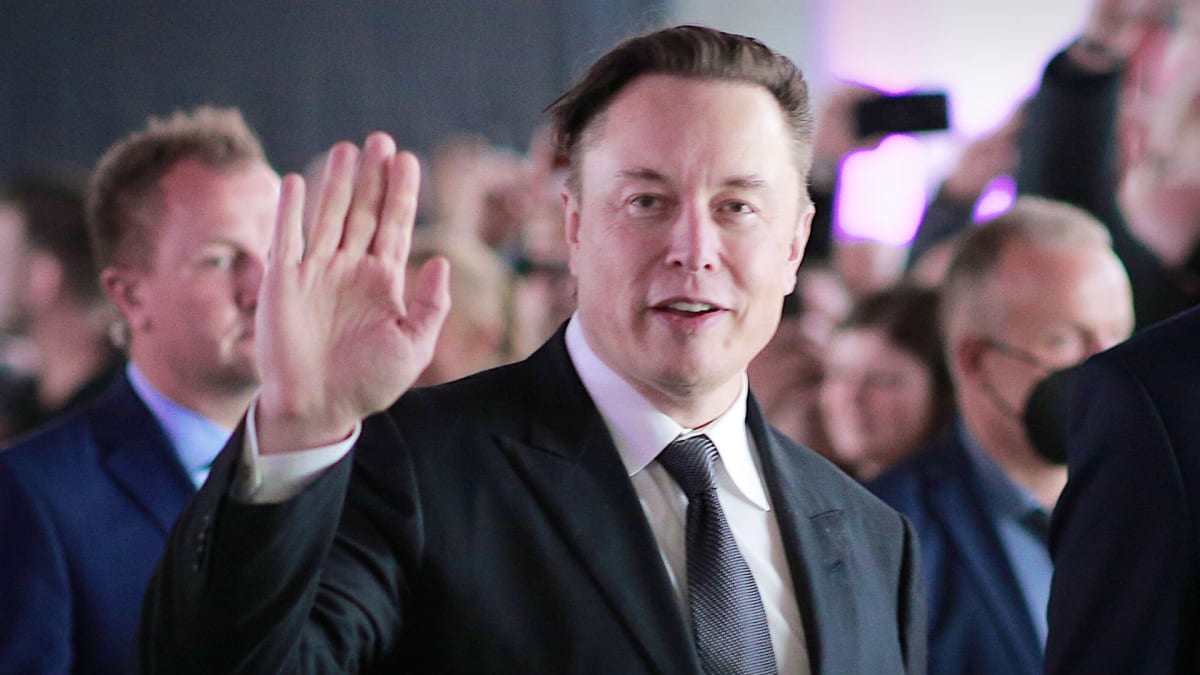
Elon Musk seems to be waking up from a bad dream.
Tesla's billionaire CEO is discovering a new reality linked to his acquisition of Twitter (TWTR): it's not going to be easy to reinvent the platform, considered the de facto town square of our time.
To generate income from the microblogging website, he will have to rely on a key group: the advertisers.
This is the complete opposite of his other ventures. Musk is used to making the best product possible. His philosophy is that his product will make a difference to consumers. That's what Tesla (TSLA) has managed to do.
Tesla vehicles -- Model S, Model X, Model Y, Model 3 -- are sold without advertising. The billionaire has managed to build an image and a reputation which are the firm's best ambassadors. Additionally, Tesla has passionate fans who praise the merits of the vehicles on social networks and on other forums.
Twitter Needs Advertisers
The highly anticipated Cybertruck symbolizes this philosophy. This futuristic truck/pickup has still not been produced and has already recorded orders of at least one million units. After repeatedly postponing the start of production, Musk has indicated that manufacturing will start in mid-2023.
Twitter, which started firing employees on November 4 to reduce costs, is a different story.
Unlike Tesla, the platform does not generate its revenue from sales of physical products. Like other social networks, Twitter relies on advertisers wishing to promote their products and services. The firm sells them advertising spots.
Ad revenue accounted for 91.4% of the $1.2 billion in revenue generated by Twitter in the second quarter ending June 30, according to a regulatory filing. The remaining revenue was through subscription fees.
It is, therefore, not a good thing to have a problem with advertisers, who usually have specific requirements. These requirements most often revolve around the content near which their products appear. Most advertisers do not want their ads associated with controversial or offensive content.
This is the message they sent to Musk, the new boss of Twitter since October 27. The billionaire defines himself as a "free speech absolutist." In other words, he believes that anything can be and should be said, as long as it does not break the law.
Advertisers have recently expressed their fears that the platform will once again turn into a free-for-all hellscape. About a dozen advertisers asked ad-buyer GroupM to suspend their ads on Twitter in the event that Donald Trump's account was reactivated, according to the Wall Street Journal.
General Motors (GM) has temporarily suspended its ads, a spokesperson told TheStreet.
"We are engaging with Twitter to understand the direction of the platform under their new ownership," David Caldwell, a GM spokesperson, said. "As is normal course of business with a significant change in a media platform, we have temporarily paused our paid advertising."
General Mills (GIS), Pfizer (PFE) and Audi (VLKAF) followed the example of the Detroit giant and decided to temporarily pause their advertising investments allocated to Twitter. They all say they want to see what the new Twitter will look like.
'Massive Drop'
The retreat of brands is impacting the company, Musk said. The billionaire is trying to find a way to increase revenue after paying $44 billion to acquire the platform.
"Twitter has had a massive drop in revenue, due to activist groups pressuring advertisers, even though nothing has changed with content moderation and we did everything we could to appease the activists," the billionaire lamented on November 4.
He added: "Extremely messed up! They’re trying to destroy free speech in America."
It seems that companies were not reassured by a message from the billionaire dated October 27, in which he promised them that there will be consequences for those who cross the limits on Twitter.
He has set up a council responsible for defining content policy. The council will examine what to do with banned accounts, like Donald Trump's, and decide which posts will be acceptable on the platform, but no decision will be made before the midterm elections scheduled for November 8, Musk has assured.
"Twitter obviously cannot become a free-for-all hellscape, where anything can be said with no consequences!" he wrote to advertisers.
No major content decisions or account reinstatements will happen before that council convenes," he added on Oct. 28.
"Twitter will not allow anyone who was de-platformed for violating Twitter rules back on platform until we have a clear process for doing so, which will take at least a few more weeks," he doubled down on November 2.
But organizations have indicated that racist comments have flared up on Twitter since Musk took ownership.
The number of trolls using the N-word on Twitter rose by 500% within 12 hours after the $44 billion deal was finalized, according to a report by the Network Contagion Research Institute, a group which researches social media content to determine threats that could materialize.
Twitter, however, has made it known that these racist and hateful comments came from unauthenticated accounts, in other words bots.
"Nearly all of these accounts are inauthentic," said Yoel Roth, Head of Safety & Integrity at Twitter. "We’ve taken action to ban the users involved in this trolling campaign — and are going to continue working to address this in the days to come to make Twitter safe and welcoming for everyone."







